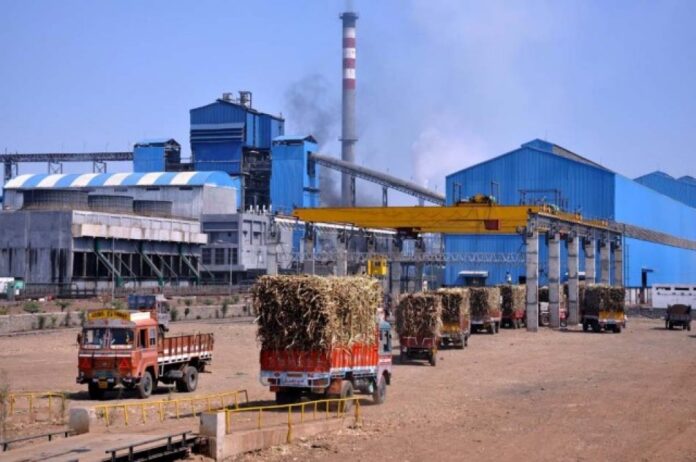ISLAMABAD: Prime Minister Imran Khan on Tuesday unveiled the Federal Board of Revenue’s (FBR) Track & Trace System for the sugar sector.
Addressing the gathering on the occasion, the prime minister called the rollout of the track & trace system (TTS) a watershed event in the development of Pakistan’s economy and hoped that it would lead to much-needed economic prosperity in times to come.
“It is an integrated, technology-based solution that shall ensure accurate reporting of production volumes through real-time monitoring of manufacturing by the affixation of tax stamps, improving quality control and thus, ensure increased revenue collection,” he added.
The PM said that at the time of assuming office, the government had inherited a dismal economic situation, and was confronted with multiple challenges. “Our revenue collection system was one of the weakest in the world, with a chronically low tax-to-GDP ratio. We were unable to effectively mobilise our own resources for the well-being of the people,” he recalled.
However, he said that the present government was committed to bringing about change and putting Pakistan on the path of self-sufficiency wherein the role of FBR could not be stressed enough. “One of our immediate priorities was to figure out how to improve monitoring mechanisms and increase revenue collection,” he added.
The PM said that the present government was the first one to break the nexus of tax evaders, vested interests and mafias. “We have not been afraid of taking difficult decisions nor shied away from plugging loopholes by enacting legislation that restricts corrupt practices and ensures transparency and fairness,” he continued.
He lamented that corrupt elements resisted the government’s efforts to improve regulatory oversight of the economy despite knowing that without sound economic practices and enhanced revenue collection, the government would not be able to allocate funds for human development, infrastructural improvement, health, and the education sector.
He said that one of the central tenets of the present government’s economic policy had been to bring about increased digitisation and automation of the entire tax apparatus as a way to reduce opportunities for graft, coercion and theft.
“The track and trace system will serve as a central pillar of this policy and shall revolutionise tax collection across Pakistan,” he added.
Concluding his speech, he appreciated the FBR chairman and the tax watchdog’s team for continuously achieving the assigned budgetary targets and expressed optimism that FBR will be able to collect Rs6 trillion by the end of the current financial year (FY22).
Speaking on the occasion, Advisor to the PM on Finance & Revenue Shaukat Tarin commended the Pakistan Sugar Mills Association (PSMA) for extending wholehearted cooperation for making the intervention possible.
“All 78 sugar mills have signed tri-partite agreements with FBR at Karachi, Lahore and Islamabad,” he informed.
About the tract and trace system, he said FBR’s officials will verify the validity of the stamps through various forensic instruments while citizens too will be able to check the same and report fake stamps through a mobile app.
He further assured the premier that through the introduction of technology in the tax system, FBR will be able to broaden the tax base and that efforts were already afoot to collaborate with NADRA for using artificial intelligence (AI) and mathematical modelling to ascertain the potential tax return filers.
He informed the audience that FBR had collected reliable information about 15 million individuals who were earning taxable incomes but not filing returns. These potential filers will soon be mobilised to discharge their national obligation by becoming taxpayers.
Moreover, FBR Chairman Muhammad Ashfaq Ahmed opined that the present government had taken “a very bold step and provided FBR with strong support to implement the track and trace system not just in the tobacco sector as previously planned, but had added more sectors like sugar, cement and fertilisers to the plan”.
He also informed the audience that FBR intends to expand the scope of the track and trace system to other key sectors including beverages, petroleum, pharmaceuticals and steel. “A proposal in this regard will be submitted to the prime minister for his approval soon,” he added.




